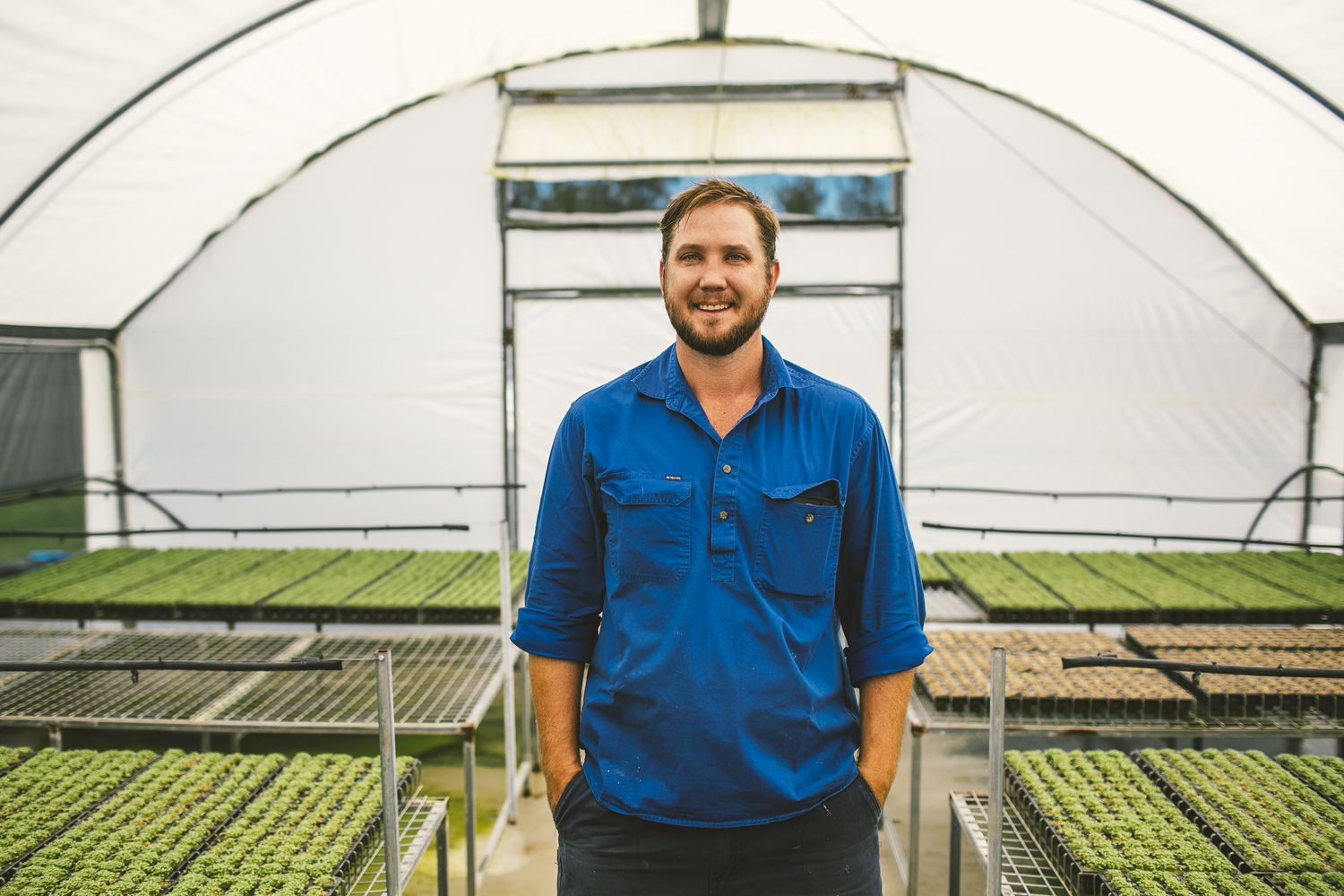James Turner: Overcoming challenges in pursuit of a sustainable future
James Turner is a 31-year-old grower from Riverdale Herbs in Yatala, Queensland. We profiled him in the January/February 2018 edition of Vegetables Australia magazine.
Fast facts
Name: James Turner
Location: Yatala, Queensland
Works: Riverdale Herbs
Grows: Watercress and culinary herbs
How did you first become involved in the vegetable industry?
Having grown up in regional Queensland, I’ve always enjoyed the rural lifestyle. So I jumped at the chance when my parents asked me if I would be interested in helping to bring the business into the 21st century.
What does your role in the business involve, and what are your responsibilities?
My role within the business is that of a production manager; that is, developing the business through trialling seed varieties to ensure we are delivering the best possible product and introducing them to our local markets and restaurants.
How would you describe your average day at work?
My time is split between our two operations, although typically it would involve conducting the daily quality assurance (QA) checks of the hydroponic systems, seeding, general farm maintenance and liaising with clients for future orders.
What do you enjoy most about working in the vegetable industry and how do you maintain your enthusiasm?
I’ve worked in two industries in my career, agriculture and engineering. They are both very similar in that they are both fast-paced and stressful, but rewarding and fulfilling. I love that.
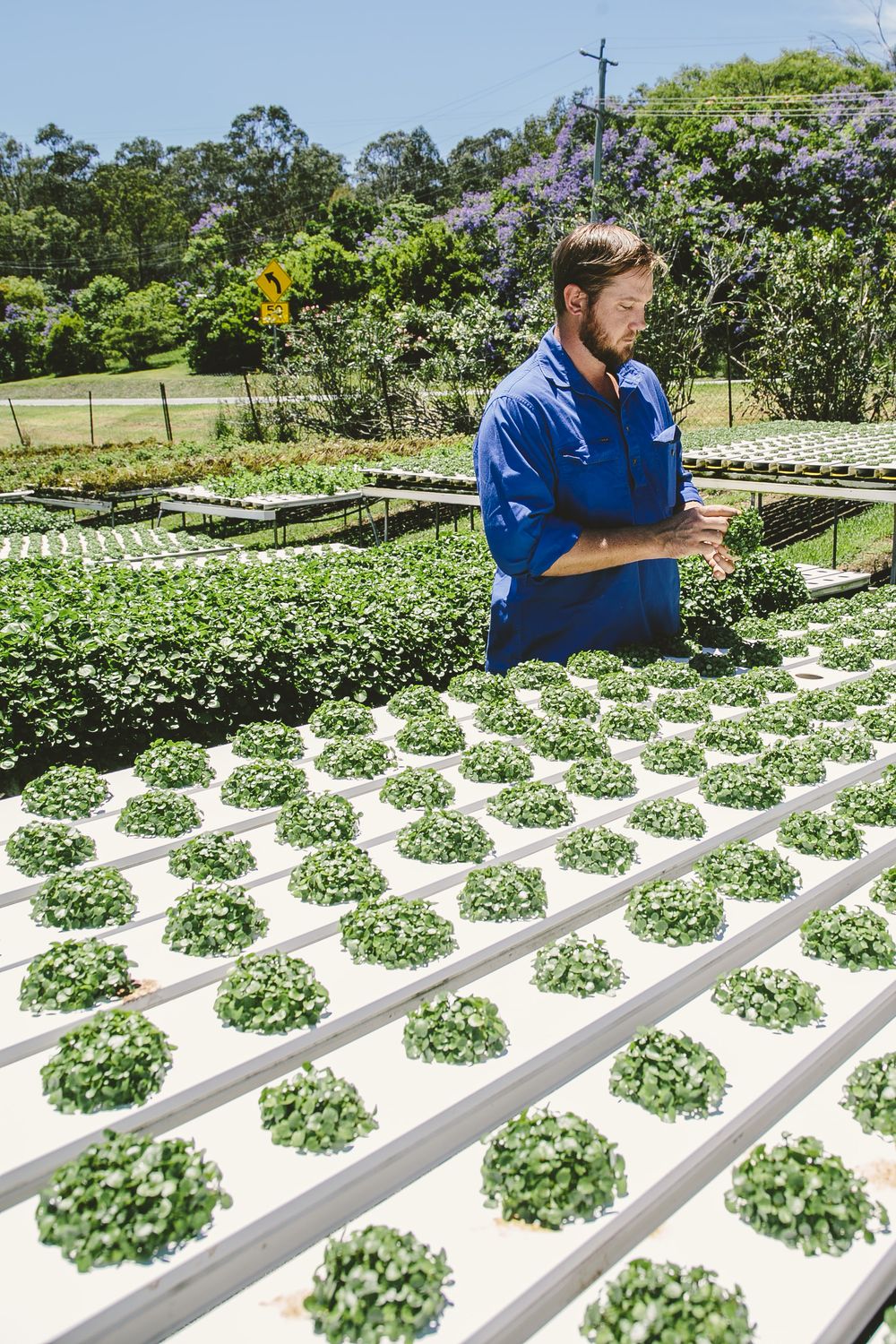
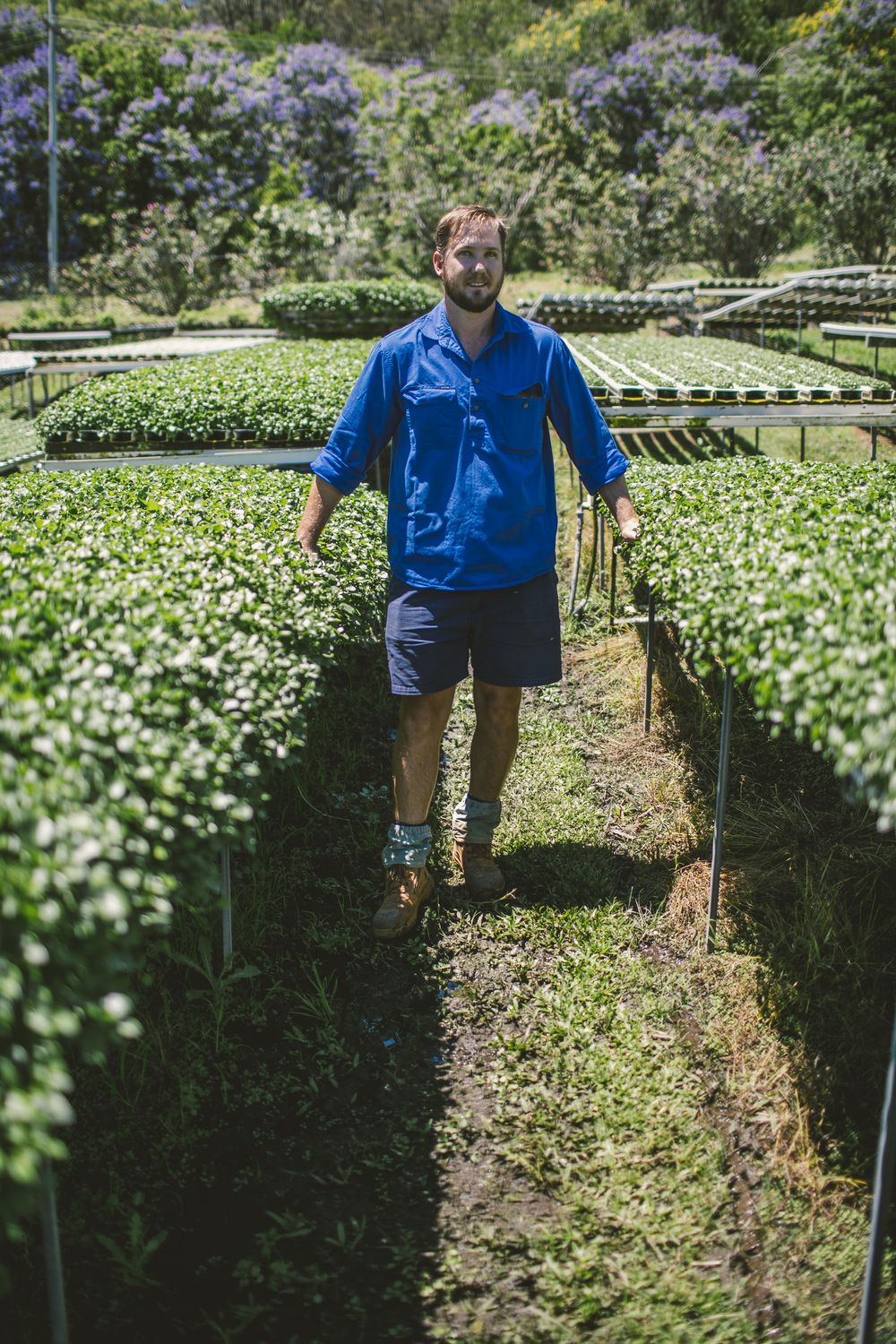
What are the biggest challenges you face working in the industry, and how do you overcome them?
Definitely environmental and climatic conditions are our biggest challenge. In March 2017, we endured one of the worst floods the Albert River has produced thanks to Cyclone Debbie. We knew that a flood was coming, so we prepared for it as best we could. However, the water passed the 1974 flood level by roughly 0.6 metres, putting 90 per cent of our operation under water. As a result of this, we are moving the business to Harrisville and investing heavily in protected cropping.
Where do you receive your on-farm practice advice and information from?
My father has a wealth of knowledge on all things farming, so I bounce a lot of ideas off him. You have to ask the right questions though to get the answers that you’re looking for. I think it is his way of constantly testing the logic of modern growing systems.
"I remember how difficult it was at school when asked, 'What do you want to be when you grow up?' I always wanted to be a farmer but at the same time I saw how hard things can get on the land, so I chose civil engineering instead. It’s ironic how things change."
In your opinion, what areas of research are important to the vegetable industry and your business?
Watercress is one of our largest lines and we would love to see more research into the health and nutritional benefits that are particularly applicable to Australia; for example, the potential for watercress to combat melanoma skin cancer.
You travelled to Europe as part of the 2017 Young Grower Industry Leadership and Development Mission. What did you learn from this experience?
It was great to be part of the tour and have the opportunity to network with other young growers from all over Australia. I always underestimated the value in networking, but hearing the various challenges each grower has had to overcome was probably the most beneficial lesson of the trip.
Where do you see opportunities for growth in the Australian vegetable industry?
I think there is going to be a push for more living produce with less packaging in the coming years. The United States and Europe are definitely spearheading this motion and I think we should look at ways to bring this to the market as well.
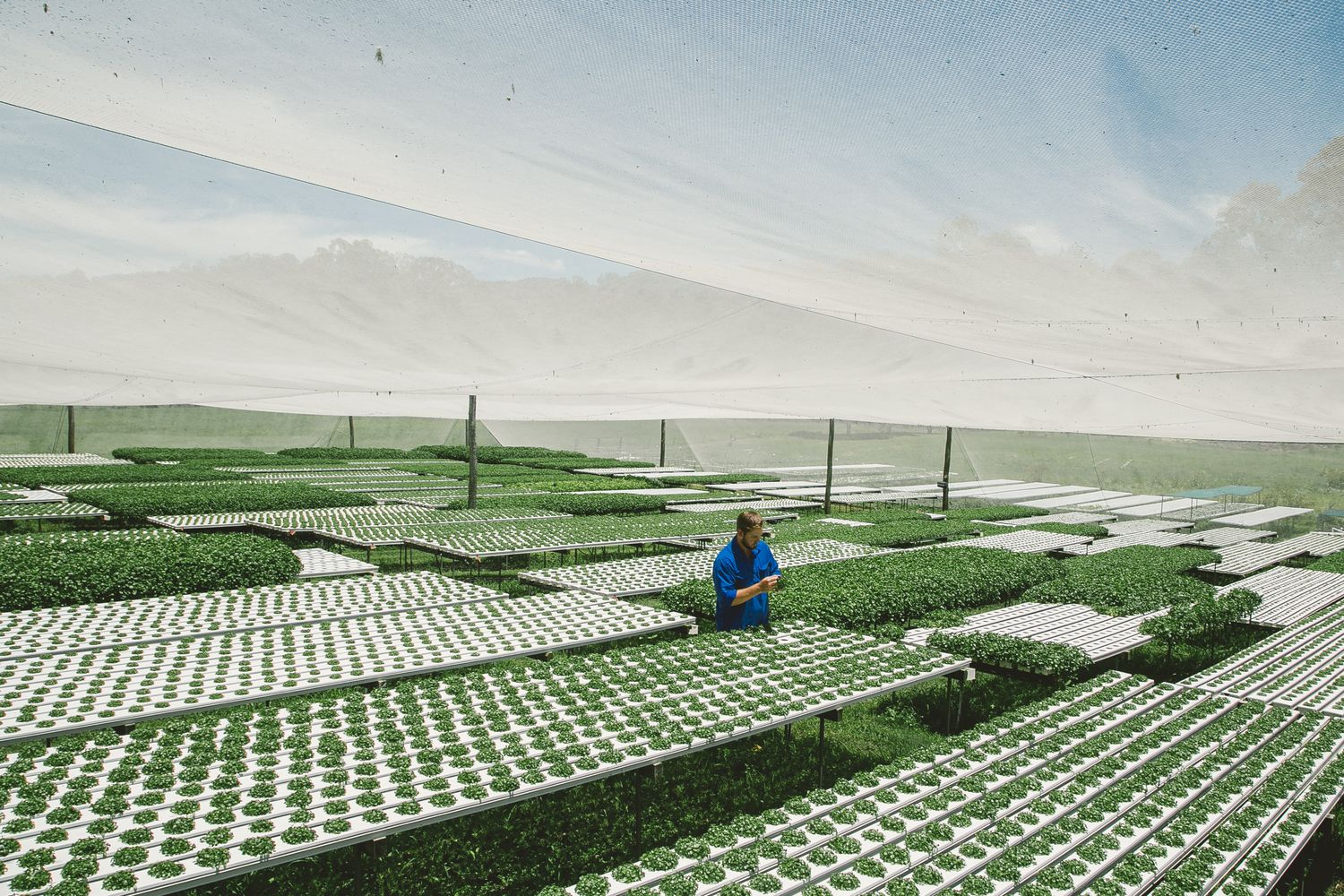
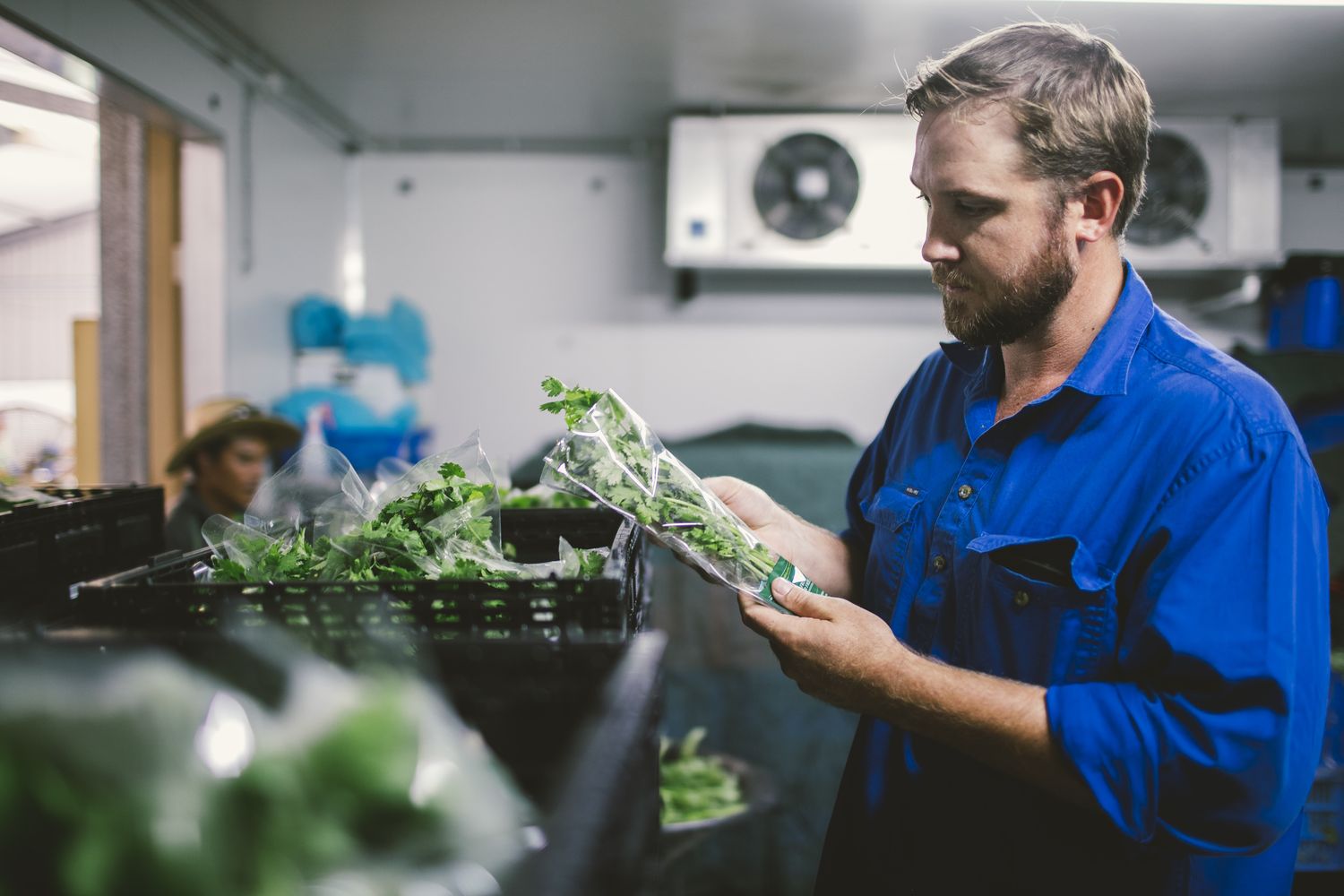
As a vegetable grower, what is your biggest achievement so far?
Our basil was severely impacted by downy mildew around April 2017. There is nothing worse than having to tell your customers that you can’t supply. It takes so long to get them back, so the pressure was on to sort out the issue as soon as possible. We have finally been able to get perfectly healthy bunches through to the packing team and our customers.
Where do you see yourself in five years?
I would hope that in five years I’ve learnt enough and asked enough questions to allow my folks to happily retire, and ultimately take over the reins.
What is your vision of the Australian vegetable industry in the future?
Automation is a hot topic and an area which I’m particularly interested in. I think the future of the vegetable industry relies on improving production systems through automation to allow growers to reduce overall operating costs.
How do you think more young people could be encouraged to study and take up jobs in the vegetable industry?
I remember how difficult it was at school when asked, “What do you want to be when you grow up?” I always wanted to be a farmer but at the same time I saw how hard things can get on the land, so I chose civil engineering instead. It’s ironic how things change. If I was to give some advice it would be to take a gap year, and go work for a few different vegetable growers. Learn as much as you can while you’re there and stay in contact with them. That’s your doorway into the industry.
This grower profile first appeared in the leading magazine for the Australian vegetable industry, Vegetables Australia. If you’d like to subscribe to receive a new edition of Vegetables Australia in your mailbox every two months, use our online subscription form!
Photography credit: Cory Rossiter

